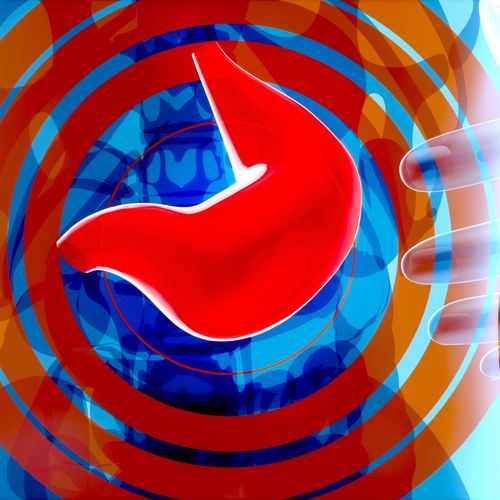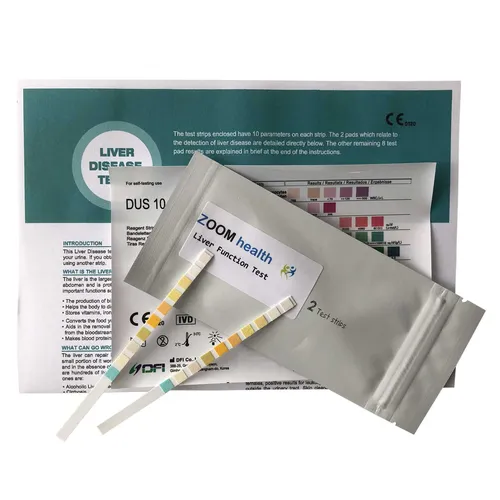The liver is the largest organ in the human body, located in the upper abdomen and protected by the rib cage. What makes the liver so special is that it can function with only a small portion of it working and can repair itself easily from any damage, for the most part.
The liver performs many vital functions such as, production of bile, helping the body digest fat, storing iron, vitamins and other critical nutrients, converting food into energy, removal of toxic substance such as drugs and alcohol from the bloodstream.
What Is Liver Cancer?
Liver cancer is said to occur when cells start multiplying at a faster rate than they should, which results in the growth of unwanted cells. There are two types of liver cancer:
Primary cancer means that the cancer starts in the liver. Primary cancer is very rare in the United Kingdom.
Secondary cancer means that the cancer has developed in some other part of the body and spread to the liver. Usually, this happens when cancers of the stomach, lung, breast and colon spread to the liver.
Primary Liver Cancer
There are two types of primary liver cancer. Hepatoma is the most common type and starts in the cells called hepatocytes that perform the liver’s most important tasks. The other type of primary liver cancer is called cholangiocarcinomas and it begins in the cells that situated at the bile ducts of the liver.
Primary Liver Cancer — The Causes
The causes of primary liver cancer are not so well known. It normally arises in people whose liver has been affected by a condition called cirrhosis or scarring of the liver. Cirrhosis can be caused due to a hepatitis B or C infection or excessive drinking of alcohol. Regardless of the causes, cirrhosis of the liver often develops into primary liver cancer.
Only a small percentage of people who suffer from cirrhosis of the liver go on to develop primary liver cancer. Generally, this type of cancer affects older people, and is very rarely found to affect children. It affects more men than women. Hepatitis A does not cause cirrhosis of the liver.
Secondary Liver Cancer — The Causes
Any primary cancer always results in a secondary liver cancer. That’s because when the cancer cells from a primary cancer enter into the bloodstream, they get embedded in the liver than start growing there, as all blood is cleansed by the liver.
Liver Cancer — The Symptoms
The symptoms of both primary and secondary liver cancer are quite similar. But it’s hard to identify the symptoms in the early stages of the cancer. Secondary liver cancer is found after the diagnosis of the primary cancer.
The symptoms of liver cancer include:
- Loss of appetite.
- Weight loss.
- Discomfort or severe pain in the upper abdomen.
- Nausea and vomiting.
- High temperature.
(Jaundice refers to a condition where the skin and the eyes turn yellow, the urine gets darkened and the stools are visibly pale in colour.)
The symptoms of liver cancer can be the same as those of many other conditions that are not as severe. So, if you find yourself having any of these symptoms, it’s important to visit a doctor at the earliest.
Liver Cancer — Prevention
To prevent liver cancer, it’s important to quit smoking immediately. This would reduce the risk of developing a lung or stomach cancer, which could lead to a liver cancer later. You should stay away from alcohol and be careful about your diet.
As said earlier, alcohol is one of the primary causes of cirrhosis of the liver. You should always practise safe sex, as that’s the best protection against the hepatitis virus, and never share needles with anyone.
If you’ve been found to have cirrhosis of the liver, you will be tested by your doctor for any sign of hepatoma. These tests include regular blood tests to identify the presence of A.F.P. or alpha-feta protein (A.F.P.), which is a substance found in heavy doses in those with hepatoma.
Lifestyle Changes To Reduce Liver Cancer Risk
While you can’t control all risk factors for liver cancer, you can take steps to protect your liver health. Here’s how:
- Limit alcohol intake. Your liver can only process so much. Give it a break by having alcohol-free days each week.
- Eat a rainbow. Fill your plate with colourful fruits and veggies. They’re packed with antioxidants that support liver function.
- Move more. Regular exercise helps maintain a healthy weight, reducing fatty liver disease risk.
- Sip on coffee. Surprisingly, your morning joe may lower liver cancer risk. Aim for 2-3 cups daily.
- Get vaccinated. Hepatitis B shots can prevent this liver-damaging infection.
- Be careful with meds. Some over-the-counter drugs can harm your liver if overused. Always follow dosage instructions.
Remember, small changes add up. By adopting these habits, you’re not just reducing liver cancer risk – you’re boosting overall health. Your liver will thank you!
Liver Cancer — The Diagnosis
Your doctor will conduct a physical examination on you and carry out a urine test as well, to look for the presence of bilirubin and urobilinogen. If the liver feels harder and/or larger than it should, then your doctor might do an LFT (or Liver Function Test) for better results.
The following are checked in a Liver Function Test…
- Alanine Aminotransferase (or ALT) and Aspartate Aminotransferase (or AST) — These are enzymes that process proteins. Their levels are higher if the liver is inflamed or injured.
- Bilirubin — A chemical in bile. A damaged liver can’t process enough bilirubin and so bilirubin levels can build up causing jaundice. An increase in bilirubin levels is indicative of liver disease.
- Alkaline Phosphatase (ALP) and Gamma-Glutamyl Transferase- The level of these enzymes may be higher when there is a blockage in your liver or in the bile duct.
- Albumin — Albumin is a protein, and lower levels of Albumin may indicate cancer or that you are malnourished.
Liver Blood Tests
A liver cancer is suspected to have occurred in the case of an abnormality seen in the liver blood tests. These tests tell you if the liver is not able to function properly, but this does not necessarily indicate cancer. When hepotama is identified to be the liver cancer type, then abnormal amounts of alpha-feta protein is usually detected in the blood.
Diagnosis of liver cancer involves getting a liver scan done, using ultrasound, M.R.I. (or Magnetic Resonance Imaging) and a CT scan. This would give a better idea of the condition of the liver as well as the exact location of the tumour. However, these tests won’t tell you if it is a primary or secondary liver cancer.
That’s why it’s important to get a final diagnosis done, which means having a biopsy, where the doctor takes small samples of the liver cells for detailed microscopic examination. This would reveal which type of cell is causing the cancer to develop.
Liver Cancer — The Treatments
The treatments that are recommended for liver cancer depend on how large the cancer is and its type. The treatment of secondary cancer would depend largely on where the primary cancer is located. In case of a hepatoma, for instance, there are a number of treatments out there. If the liver cancer is small it can be removed by an operation. Even if the operation involves removing a large part of the liver, the liver grows back easily and gets back to how it was before the cancer.
A liver transplant may be required in case the liver has been heavily damaged by cirrhosis. Chemotherapy is usually used in the treatment of both primary and secondary liver. Radiotherapy, on the other hand, is rarely ever used.
If the primary liver cancer has been caused due to cholangiocarcinomas, then treating it would be very difficult. The treatment is done in several stages. First the jaundice is treated, then the size and location of the tumour are assessed by your doctor and finally, a surgery is performed to get remove the tumour. Radiotherapy is used to treat this type of cancer.
Photo by julien Tromeur on Unsplash
Zoom Health is a leading UK supplier of Home Health Tests and Earplugs






